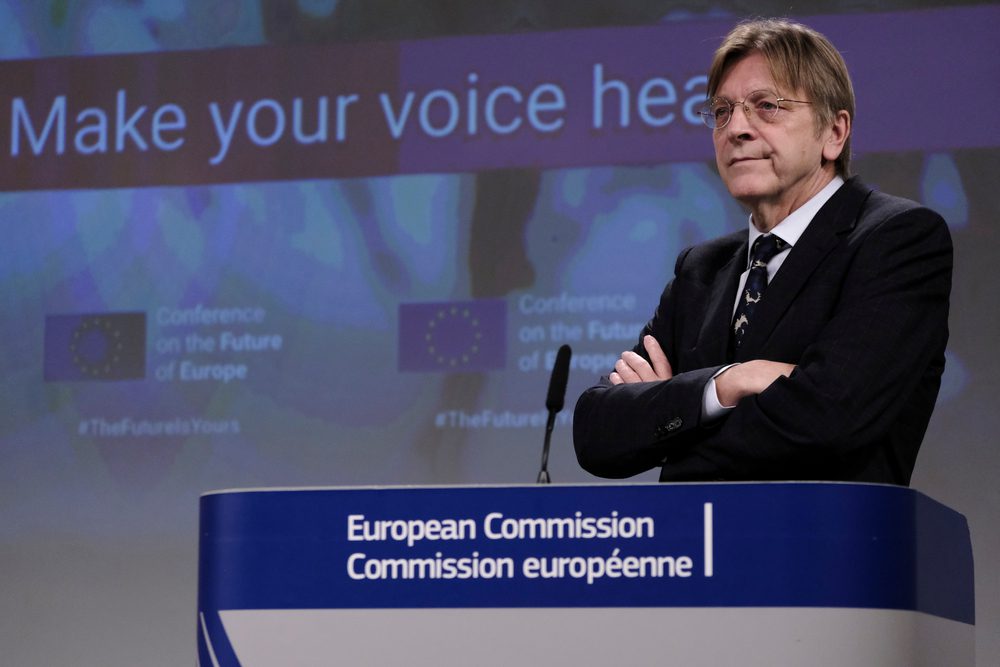
Member of the European Parliament Guy Verhofstadt
Eurofederalist factions within the European Parliament are planning a drastic expansion of EU executive powers in tandem with the bloc’s wish to integrate the Western Balkans and Ukraine over the next decade, a leaked report revealed.
The 116-page report examining potential EU treaty changes was compiled by six MEPs, including former Belgian PM Guy Verhofstadt. It outlines a roadmap to, among other things, abolishing national vetoes and transferring powers over defence, taxation, and foreign policy to a rebranded European Commission now known as the “European Executive.”
The plans were too extreme for one MEP, Jacek Saryusz-Wolski of the Law and Justice Party, who resigned as co-rapporteur on a report regarding treaty changes with Parliament’s Committee on Constitutional Affairs (AFCO) last month. He warned about the formation of a “highly centralised structure escaping democratic control and removing unanimous decision-making in almost all treaty areas” in a statement to The European Conservative. He also described how proposals to the Committee by the conservative ECR group had been dismissed.
The report is to be fully released in mid-September with many diplomatic insiders stating, off the record, that the plans are largely a provocation and unlikely to be actioned due to disunity around the bloc.
Eurocrats are particularly jumpy about the potential for treaty changes that govern the workings of the EU, in particular, the risk of instigating various national referendums in order to accommodate the expansion plans over the next decade.
Despite lingering questions around sovereignty and a shared defence strategy within the bloc, the war in Ukraine has energised, EU expansionism: The Western Balkans (Serbia Montenegro, Kosovo, and Bosnia) are currently preparing to be onboarded into the union over the next decade.
Giving the EU sole authority over environmental powers is among the additional proposals broached under the report, a move that could potentially aggravate a rising tide of agrarian populist rebellion, right in time for the 2024 European elections against the EU-led climate agenda.
While the prospect of Ukrainian accession poses many headaches for European leaders—fiscal policy and national vetoes to name a few—Eurofederalists believe it is high time to cut the Gordian knot on the European project and lay the proper groundwork for a centralised federal state.
In defence of the committee’s proposals, a German Green MEP who spoke to The European Conservative said there was a majority in the European Parliament pushing for the plans and that the time was now for treaty changes.
It is time for the European Union to take the next step forward. To strengthen our democracy. To defend our European values and the rule of law. To fight corruption. Call it “provocative” or not. It is what European citizens have asked us to do.
Already there are signs that the enlargement process is running into turbulence, as Brussels and prospective member states bicker over a 2030 deadline to complete the accession process. Many Western European capitals complain that fiscal burdens and foreign policy concerns pose major risks to the bloc.
